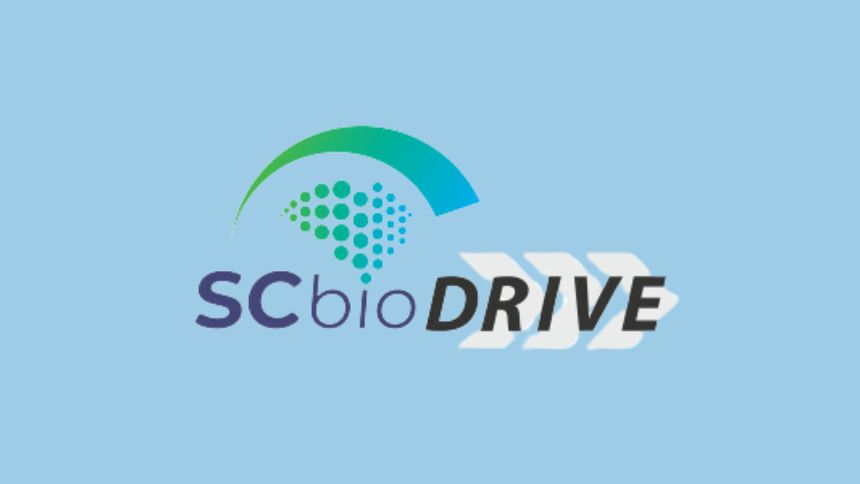
Seven companies selected for inaugural SCbioDrive Accelerator
The participants hail from South Carolina, Boston, New York, Florida, and even as far as Taiwan.
SCbio, in partnership with the Massachusetts Biotechnology Council (MassBio), has selected seven emerging life sciences companies to participate in the inaugural SCbioDrive Accelerator cohort.
“We are thrilled to welcome this exceptional cohort of oncology and neuroscience companies to SCbioDrive,” said SCbio President and Chief Executive Officer (CEO) James Chappell. “With participants hailing from South Carolina, Boston, New York, Florida, and even as far as Taiwan, this is a testament to the global appeal and momentum our state is generating in the life sciences sector—especially in areas we’re becoming known for in the state: oncology and neuroscience. By bringing together these world-class innovators, we’re not only advancing critical scientific breakthroughs but also shining a spotlight on South Carolina as a hub for life sciences innovation and collaboration.”
A semiannual program, SCbioDrive will lead seven seed-stage life sciences companies through an eight-week hybrid program designed to advance their platforms and technologies through expert business curricula, industry guidance and mentorship – all at no cost.
“To support innovation anywhere is to help deliver for patients everywhere, and partnering with SCBio to launch their own accelerator is one way that MassBio is able to do that, and I’m thrilled to see the first cohort of companies selected to participate,” said MassBio CEO and President Kendalle Burlin O’Connell. “The Drive programs empower startups and founders at a crucial juncture in their growth, and what I love to see is what they are able to do next armed with business know-how, seasoned mentors, and access to our global network.”
The program will end in November with a Demo Day in Charleston, SC, where cohort companies will present to a curated group of potential investors and industry leaders.
SCbioDrive Fall 2024 Cohort:
- Booster Biosciences of Melrose, MA, leverages novel biological models developed at Harvard Medical School to discover the mechanisms of resistance and engineer optimal therapeutics. Their portfolio of patented therapeutics targets resistance to conventional and immuno-oncology drugs.
- Cell BioEngines Inc. of New York City is a clinical-stage biotech company focused on developing allogeneic ‘off-the-shelf’ stem cells and their derived therapies as ‘drugs’ for human disease treatment. Its lead product is currently in Phase 1 trials for the treatment of hematopoietic neoplasms not curable with available therapies.
- Define Therapeutics Inc. of Arlington, MA, discovers and develops innovative therapeutics for tough-to-treat prostate cancers, such as castration-resistant prostate cancer and neuroendocrine prostate cancer.
- Jaya Biosciences Inc. of Greenville, SC, is developing CNS-directed gene therapies for genetically defined neurodegenerative diseases, including Alzheimer’s, Parkinson’s, and frontotemporal dementia. Jaya’s platform is based on the groundbreaking discovery that carriers of loss-of-function mutations in genes for lysosomal enzymes have an increased risk of neurodegeneration, including early onset of symptoms.
- RephImmune Biotechnology of Taipei, Taiwan, is a preclinical-stage start-up specializing in fully self-innovated engineered cellular immunotherapy to combat solid tumors. RephImmune is developing a novel cell therapy called RACE to provide late-stage cancer patients, who are running out of treatment options, with a low-dose, single-administration treatment that is more efficient, safer, and long-lasting. Unlike convention CAR-T, RACE offers a more potent and balanced immune response by bypassing conventional T cell signaling pathways.
- Torpedo Bio of Charleston, SC, is developing technology to address the unmet need of efficacious and safe cellular immunotherapy for solid tumors. Current chimeric antigen receptor (CAR) T cell therapies have had outstanding results in liquid tumors, such as leukemias and lymphomas. Unfortunately, liquid tumors are only 10% of total cancer cases and CAR T cells do not work well for solid tumors. Torpedo Bio’s approach is to use engineered anti-tumor regulatory T cells, which have the potential to be a much-needed efficacious and safe treatment for solid tumors.
- Vova Ida Therapeutics Inc. of Jupiter, FL, is developing disease-modifying treatments for age-related neurodegenerative disorders. VIT’s lead program is at the IND-enabling stage and focuses on restoration of neuronal nicotinamide adenine dinucleotide homeostasis and cell recovery. VIT’s preclinical data and clinical development plan are supported by use of proximal biomarkers that show target engagement and that are relevant to disease pathogenesis.
Like what you've read?
Forward to a friend!

